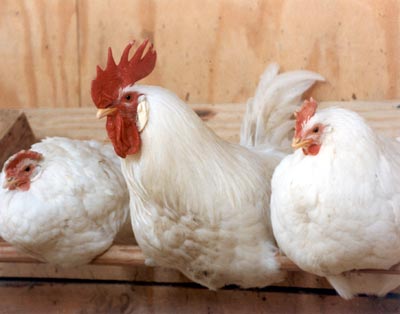Ivan Potter, West Kentucky Journal
Tuesday, February 26, 2013 1:57 pm
Looming over West Kentucky is the sequestration bomb of instant food industry employment cuts and factory closings.
According to Graves County Growth Alliance’s website, the Pilgrim’s Pride plant in Hickory is one of the most cost efficient in the US. The plant employs 1,500 workers in the factory. Between 500 and 1,000 workers rely on the plant indirectly through local farms and suppliers.
Graves County will take a direct hit if sequestration, if the across the board cuts in federal spending, known as “sequestration” go into effect.
Come March 1, 2013, these jobs may be cut due to the lack of a federal meat inspector.
America’s food safety and inspection system will become seriously impaired if full cuts to the USDA are carried out.
The Department of Agriculture (USDA) has warned that the sequester cuts would force furloughs of up to 15 days for employees of the Food Safety and Inspection Service (FSIS), which is charged with inspecting meat, poultry and eggs.
Without on-site inspectors at roughly 6,290 plants nationwide, some food producers would be forced to cease operations. USDA estimates that could cost more than $10 billion in production losses and $400 million in lost wages for workers.
 West Kentucky is home to major suppliers of basic food supply. Chicken barns, chicken processing meat factories, hog farms, and fish farming operations are all located in Western Kentucky. For example, Hickman County has roughly 200 chicken barns, holding up to 5,000 chickens.
West Kentucky is home to major suppliers of basic food supply. Chicken barns, chicken processing meat factories, hog farms, and fish farming operations are all located in Western Kentucky. For example, Hickman County has roughly 200 chicken barns, holding up to 5,000 chickens.
Commercial hog farms in Carlisle, Graves, Hickman and other West Kentucky counties will be affected by sequestration. Each of these operations holds as many as 5,000 hogs.
Some meat industry groups have argued that the government is using the threat of furloughing inspectors as political leverage in an eleventh-hour showdown between the White House and congressional Republicans.
“We do think that they have options to prevent the furlough of inspectors,” said Janet Riley, a spokeswoman for the American Meat Institute. No inspections would result in work stoppages at the plants — leading to a decrease in the meat supply and then increases in prices” according to Riley.
But Agriculture Secretary Tom Vilsack told the group the Department has no other option.
“Unfortunately, unless Congress acts to prevent sequestration, FSIS will have no choice but to furlough its employees in order to stay within the budget Congress has given it,” Vilsack wrote in a letter to the group on Feb. 12.
Others are worried about furloughs for food inspectors and plan to escalate their lobbying if the sequester comes to be.
“If it does occur and the sequester does go through, we will be vocalizing and engaging a lot more than we have been,” said R.J. Karney, director of congressional relations for the American Farm Bureau Federation.
Other business groups have said it’s too early to know how the budget cuts would affect government services.